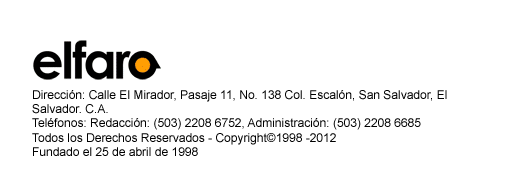EL SALVADOR: THE CASE FOR MAJOR NON-NATO ALLY STATUS
Publicado el 24 de Mayo de 2011
id: 128788
date: 11/5/2007 22:36
refid: 07SANSALVADOR2229
origin: Embassy San Salvador
classification: CONFIDENTIAL//NOFORN
destination:
header:
VZCZCXYZ0000
PP RUEHWEB
DE RUEHSN #2229/01 3092236
ZNY CCCCC ZZH
P 052236Z NOV 07
FM AMEMBASSY SAN SALVADOR
TO RUEHC/SECSTATE WASHDC PRIORITY 8504
INFO RUMIAAA/CDR USSOUTHCOM MIAMI FL PRIORITY
RHEHNSC/NSC WASHINGTON DC PRIORITY
----------------- header ends ----------------
C O N F I D E N T I A L SAN SALVADOR 002229
SIPDIS
NOFORN
SIPDIS
FROM THE AMBASSADOR
NSC FOR DAN FRIED
WHA FOR A/S SHANNON
PM FOR A A/S MULL
WHA/CEN FOR JFEELEY, HTHOMPSON
E.O. 12958: DECL: 11/05/2017
TAGS: ES, MARR, MOPS, PREL
SUBJECT: EL SALVADOR: THE CASE FOR MAJOR NON-NATO ALLY
STATUS
Classified By: Ambassador Charles L. Glazer for reason 1.4(d)
1. (C/NF) Introduction: The government of El Salvador (GOES)
has evolved into a major U.S. partner in Latin America and
beyond. U.S.-Salvadoran cooperation extends across a broad
spectrum, encompassing defense, counter-terrorism, and law
enforcement, as well as regional, multilateral, and trade
diplomacy. Major Non-NATO Ally Status (MNNA) for El Salvador
would formalize the strong working relationship we enjoy with
the GOES, and, more importantly, establish a rock-solid
foundation for future cooperation. Given the importance
President Saca attaches to MNNA status for El Salvador, he is
likely to raise the issue during his November 29 Oval Office
meeting with President Bush.
------------------------------
The Defense Argument for MNNA
------------------------------
2. (C/NF) Since the signing of the 1992 Peace Accords, the
Armed Forces of El Salvador (ESAF) have evolved into one of
the most professional, capable military organizations in the
Western Hemisphere. Complying with the mandates of the Peace
Accords, the ESAF have stayed out of politics, and instead
focused on professionalization and the development of useful
capabilities, such as humanitarian assistance and disaster
relief.
3. (C/NF) The U.S. military enjoys a close, cooperative
relationship with the ESAF, with both parties working in
synch to improve capabilities, enhance interoperability, and
ensure strong institutional linkages. The Salvadorans have
consistently made excellent use of USG-supplied equipment and
logistical support (FMF/FMS), as well as International
Military Education and Training (IMET) and institutional
exchange programs.
4. (C/NF) Our close relationship with the ESAF paid enormous
dividends with the onset of Operation Iraqi Freedom (OIF).
Since 2003, the ESAF has deployed nine rotations of troops
(on average 380 personnel per rotation) to Iraq in support of
OIF. During these deployments, the ESAF have proven
themselves to be stalwart allies who put their military
expertise at the service of coalition forces. The
Salvadorans have sustained five deaths in Iraq, as well as
numerous serious injuries to other ESAF members. Throughout
their involvement in OIF, the Salvadorans have consistently
impressed coalition and Iraqi partners alike with their
professionalism and dedication to duty.
5. (C/NF) Conferring MNNA status would institutionalize the
current ad hoc U.S. relationship with the ESAF and the
Salvadoran defense establishment. The current Minister of
Defense, as well as the service chiefs, have consistently
expressed their frustration with the necessity to
re-establish the bona fides of the ESAF with each subsequent
U.S. administration, as well as in the wake of U.S.
ministerial-level changes (DOD, DOS). From their
perspective, MNNA status would recognize the importance the
USG places on military-to-military relations with the ESAF,
as well as set the stage for lasting cooperation by
institutionalizing the U.S.-GOES defense relationship.
6. (C/NF) Bestowal of MNNA could result in an enhancement of
ESAF operational capabilities that would in turn benefit U.S.
security interests. MNNA status could expedite provision of
assets such as high-speed patrol boats, for example, that
would enable the ESAF to even more actively support U.S.
efforts to interdict maritime narcotics trafficking along El
Salvador's Pacific coastline. Other enhanced ESAF
operational enhancements stimulated by MNNA status could
yield similar mutual benefits.
-------------------------------------
Counter-terrorism and Law Enforcement
-------------------------------------
7. (C/NF) In addition to excellent military and defense
cooperation, the GOES has emerged as a major regional partner
on law enforcement and counter-terrorism (CT) issues. El
Salvador is host to Central America's only Cooperative
Security Location (CSL). Based at Comalapa International
Airport, the CSL is a key regional hub for U.S.
counter-narcotics activities, as well as an essential
component of JIATF-South's operational network and SOUTHCOM's
overall regional force posture. In close cooperation with
the ESAF and Salvadoran civilian police authorities, U.S.
forces operating out of Comalapa have facilitated numerous
multi-ton seizures of illicit maritime narcotics shipments,
and disrupted innumerable air and maritime smuggling
attempts. With the possible closure of the Manta (Ecuador)
CSL in play, the U.S. presence at CSL Comalapa would likely
take on added operational importance. MNNA status would
provide further impetus to extending the Comalapa CSL
presence into the foreseeable future.
8. (C/NF) El Salvador has also consistently supported U.S.
regional CT efforts. The ESAF Counter Terrorism Unit, which
receives DOD training and equipment, enjoys a close
cooperative relationship with U.S. counterparts. In terms of
law enforcement equities, the Salvadoran National Civilian
Police (PNC) have proven themselves to be excellent partners,
providing assistance, liaison, and information on the CT
front, while the Attorney General's Financial Investigation
Unit (FIU) has been solid on money laundering and terrorist
financing.
--------------------------------
The Diplomatic Argument for MNNA
--------------------------------
9. (C/NF) Simply put, El Salvador is arguably our closest
friend in the Western Hemisphere. The U.S. and El Salvador
enjoy an excellent bilateral relationship, primarily based on
the fact that we are of the same mind on the important role
that market economies, democracy, human rights, and the rule
of law play in the maintenance of prosperity and security in
the Americas. Even in areas of bilateral friction, such as
illegal immigration and U.S. deportation of criminal aliens,
the depth of shared friendship, mutual goals, and the
maturity which characterizes the bilateral relationship
enables the USG and the GOES to overcome significant hurdles.
At a juncture in which regional actors are increasingly
challenging U.S. interests across the hemisphere,
demonstrating that maintaining a close friendship with the
U.S. yields tangible benefits is an advisable course of
action.
10. (C/NF) El Salvador's regional and multilateral posture is
closely aligned with U.S. interests. El Salvador is
consistently supportive of U.S. initiatives at the OAS, with
Salvadoran diplomats working closely with U.S. counterparts
on issues of mutual importance. President Tony Saca is a
staunch opponent of Castro's Cuba, as well as a cautionary
voice against the dangers that Hugo Chavez' "Bolivarian
revolution" presents to the political, economic, and social
fabric of Central America. El Salvador's multilateral
diplomacy at the UN is equally supportive of a broad range of
U.S. interests, with Salvadoran diplomats not infrequently
willing to co-sponsor and/or lobby on behalf of U.S.
proposals.
11. (C/NF) On numerous occasions, President Saca has told me
that he wants a visible demonstration of U.S. appreciation
for the sacrifices El Salvador is making in order to support
the U.S. in OIF. MNNA status is exactly the demonstration of
appreciation he is looking for. Moreover, given the
importance President Saca attaches to MNNA status, I expect
him to raise the issue with President Bush during their
upcoming November 29 meeting at the Oval Office.
------------------------------
In Life, Timing is Everything
------------------------------
12. (C) El Salvador will hold municipal and legislative
elections in January 2009 and presidential elections two
months later. Awarding MNNA status to El Salvador prior to
these elections could provide an important push to political
actors inclined to maintain strong security and defense
cooperation with the United States, and, if appropriately
timed, would help maximize President Saca's remaining tenure
in office.
--------------------------------
Evidence Argues for MNNA Status
--------------------------------
13. (C) I believe the factors discussed above - military, law
enforcement, CT, and diplomatic cooperation - make a
compelling case for conferring MNNA status on El Salvador.
The GOES is already a major partner in defense,
counter-terrorism, law enforcement, and diplomacy, and has
demonstrated a shared commitment to free markets, democracy,
the rule of law, and regional stability. MNNA status would
institutionalize U.S. friendship with a fellow democracy,
yield substantial concrete benefits in terms of military and
defense issues, and establish a solid foundation for
additional future cooperation.
14. (C) Above and beyond policy, the fundamental reality is
that the Salvadorans have demonstrated their genuine
friendship with the U.S. in the most concrete manner
possible. They have sent their soldiers to war alongside the
men and women of the U.S. military, and stood by their
commitment to the U.S. at the cost of making the ultimate
sacrifice.
Glazer
=======================CABLE ENDS============================




